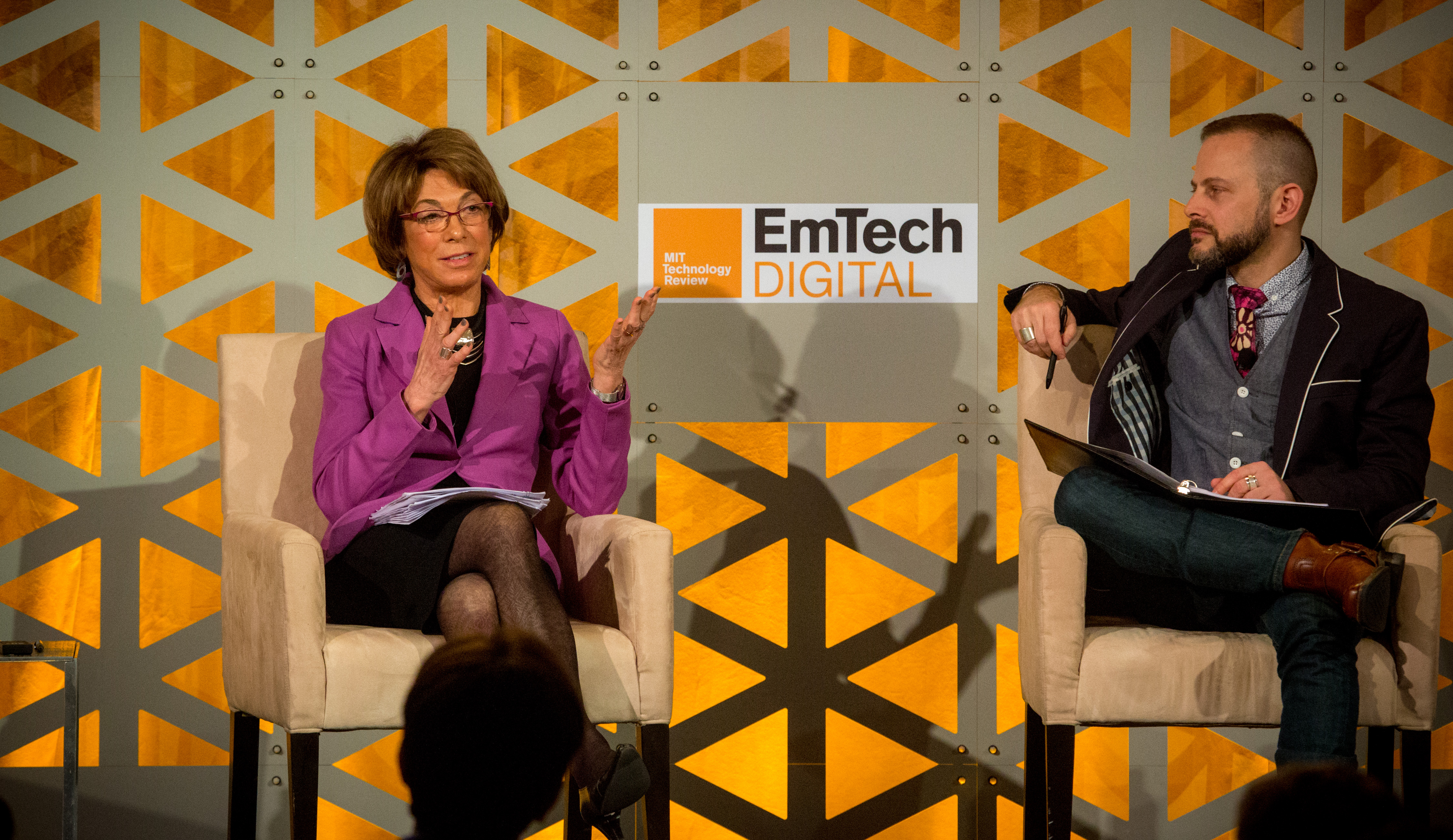AI is rapidly changing the types and location of the best-paying jobs

Artificial intelligence and automation are not likely to cause vast unemployment, but that doesn’t mean we shouldn’t be concerned about the impact on jobs.
“I’m not worried about technological unemployment,” said Laura Tyson, a prominent economist at the Haas School of Business at the University of California, Berkeley. “But I am worried about the quality of jobs created and the location where they are created.”
Speaking this week at EmTech Digital, an annual AI conference organized by MIT Technology Review, Tyson suggested we look the effects of increasing automation over the last 30 years. What we know, says Tyson, is that automation has taken away many routine jobs.
Particularly hard hit have been middle-skill and middle-income jobs, such as those in manufacturing. “We know from the past that the jobs that require low skills are more likely to be automated,” said Tyson. “I worry about income inequality.”
Automation and AI will create new jobs. But, said Tyson, those new jobs might not be in the same parts of the country in which employment has been decreased by automation. And that has created frustrations and concerns in many parts of the US, including the Midwest.
Technology advances have greatly changed jobs in the past, of course, most notably during the Industrial Revolution. But, Tyson said, the rate of change is much faster today, and there are some vital questions unanswered. Can we come up with a way to retrain workers? And, she asked, who will pay for that retraining?
Keep Reading
Most Popular
Large language models can do jaw-dropping things. But nobody knows exactly why.
And that's a problem. Figuring it out is one of the biggest scientific puzzles of our time and a crucial step towards controlling more powerful future models.
How scientists traced a mysterious covid case back to six toilets
When wastewater surveillance turns into a hunt for a single infected individual, the ethics get tricky.
The problem with plug-in hybrids? Their drivers.
Plug-in hybrids are often sold as a transition to EVs, but new data from Europe shows we’re still underestimating the emissions they produce.
Stay connected
Get the latest updates from
MIT Technology Review
Discover special offers, top stories, upcoming events, and more.